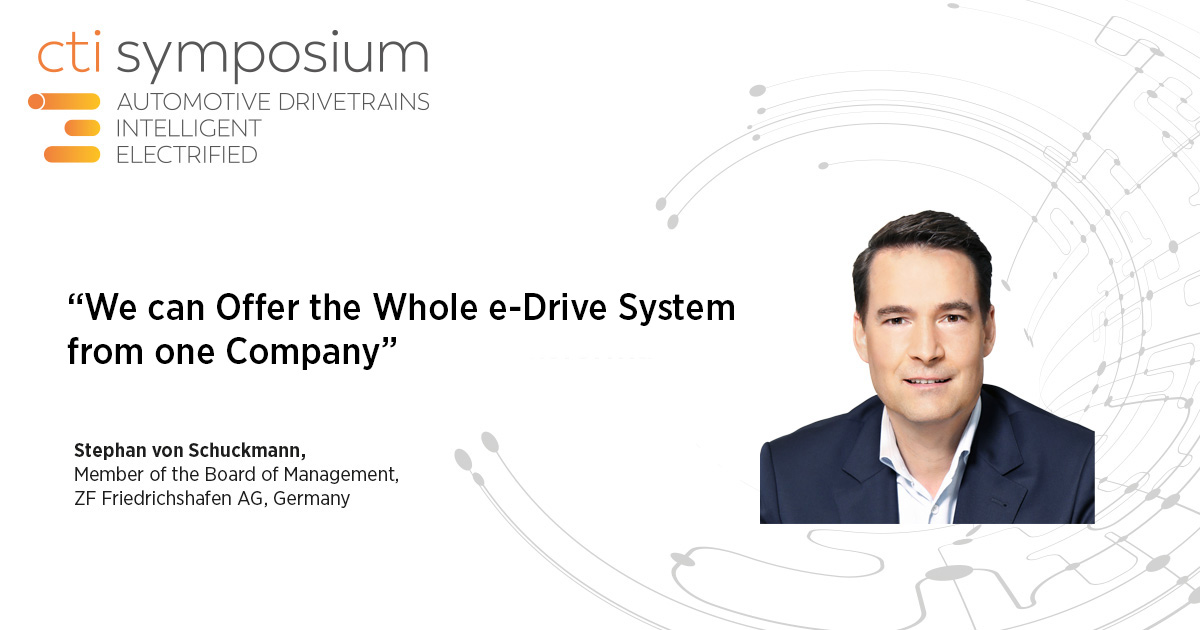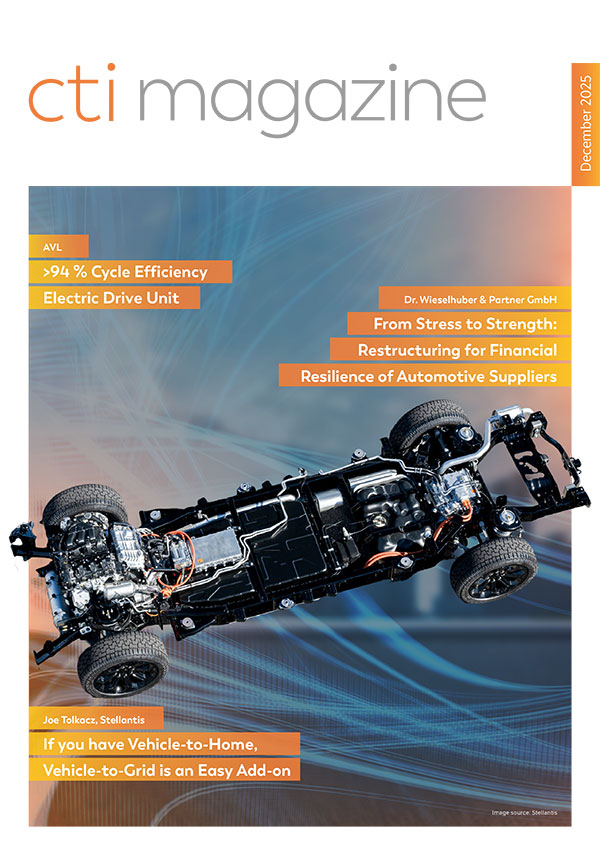
“We can Offer the Whole e-Drive System from one Company”
What are the most crucial success factors for a Tier 1 supplier to master the transition to electrified powertrains?
The car of the future will be autonomous, connected, shared, and electrified. Based on this very real scenario, the transformation of the whole industry is extremely challenging. It needs a lot of new approaches in almost every area of the industry. And in terms of the powertrain alone, there are still several technologies running in parallel – from conventional to hybrid and electric drives.
As a technology leader, ZF needs to transform quicker than the market, so speed and agility are decisive. Therefore, we have set up a new organizational structure based on a significantly flatter hierarchy. We are developing platform strategies and using digitalization to speed up our processes and secure the integrity of our high-quality requirements. And we are building new strategic partnerships and ecosystems to access new technologies and services.
When you think of the market volatility or the current lack of semiconductors and other commodities, another success factor will be, how flexible you are in volume production and how the global footprint is established.
Also, international cost competitiveness is more important than ever. There are a lot of new – often non-automotive – players in the market that would like a piece of the cake, which leads to more competition and new challenges for the established suppliers. In addition, the OEMs are also under cost pressure due to the huge investment necessary for the transition. This also affects suppliers like us.
Besides all those factors, product excellence and our contribution to climate protection and sustainability will remain the keys to our successful transformation.
To sum it up, the essential success factors for a Tier 1 supplier in this era of transformation are agility, speed, cost-competitiveness, and product excellence.
To what extent does this transition include a more comprehensive view of the vehicle and its environment?
The transition to electrified powertrains is not just a change of the propulsion system – it comes together with a change of mobility in general. This is the reason why we have to widen our view much more than ever before. The main questions impacting mobility today and in future are: How does climate change affect individual mobility behavior? How does the rapid spread of digitalization affect engineering, production, sales, and transportation generally? And last but not least, what effects does this have on our products? These questions are enough to see that we cannot carry on as we used to do. Although this more comprehensive view of transport and mobility already started many years ago, it is more important than ever to think outside the box and take a holistic view of the system.
What is ZF doing to qualify its personnel for these new requirements?
When we founded the new Electrified Powertrain Technology Division one year ago, we brought together specialists from different disciplines and technologies and formed the new division with almost 30,000 employees. The organizational changes towards a matrix organization with a strong weighting of the six product lines is the basis of our transformation in conjunction with the upheavals on the global markets. And most importantly, the contribution of every single employee is the key to our success!
That is why we set up our so-called E-Cademy, the biggest qualification initiative in the history of our company.
The E-Cademy is based on three pillars. First, the “E-Mobility Fundamentals”: We strengthen identification with the new organization by providing every employee with basic knowledge about e-mobility.
The second pillar is “Learning Culture & Hooray Atmosphere“: We create a positive atmosphere and nurture a learning culture by ensuring that all employees are familiar with the essentials of our business and activities, and can deduce for themselves why continuous learning is so important.
The third pillar is made up of learning journeys: We enable our workforce to develop and to produce state-of-the-art products by re-skilling them with customized learning journeys.
The E-Cademy learning platform is designed to be a long-term initiative supporting our employees through the ongoing transformation process and qualifying them for future tasks.
What advantages does ZF have in this process compared to an e-mobility start-up?
We at ZF have a unique chance to succeed in the e-mobility transformation. Unlike most of our competitors, we enter this transformation with a broad and balanced portfolio that ranges from ICE-based business to hybrid solutions to fully electric drives.
In addition, we have in-depth knowledge and experience in every field of mobility – from passenger cars to commercial vehicles, from construction machinery to special driveline technology. In brief: we electrify everything.
There is almost no player out there who can offer the whole e-drive system from under one roof: e-motor, power electronics, and reducer – we develop and produce every essential component of the electric drivetrain on our own.
If we take a look at power electronics, for example, we already generate significant economies of scale thanks to our high-volume PHEV technology, which has been on the market for more than 10 years now.
Let me conclude with one high-level technology proof point: ZF is an early mover and technology leader in SiC components and 800-volt systems with SOPs in early 2022, and we can offer this technology for all the above applications.
I think a start-up has some organizational and very specific advantages compared to a big group like ZF. However, with the prerequisites mentioned, I am convinced that we have a better starting position than a start-up.
Learn more in Dr. Otmar Scharrer´s, Senior Vice President Research & Development Electrified Powertrain Technology, ZF Friedrichshafen AG, plenary speech „E-mobility accelerated – Trends and dynamics of the drivetrain transformation“ at CTI Symposium Germany on 30 November.
